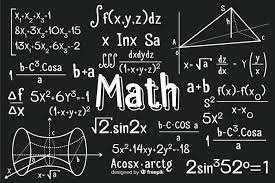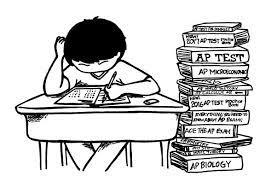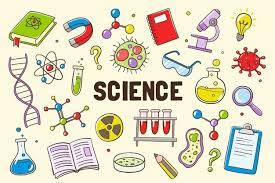By Diana Sanchez and Jennifer Loja
As the end of the year approaches, many MCSM students have signed up for AP classes to take next year. Signing up for AP classes can be scary and challenging—especially if you don’t know much about the class or the teacher. Below are interviews with former or current students in AP classes describing their overall experience in the class. This interview was done anonymously to encourage students to share their honest thoughts. Hopefully, their answers can give other students more insight into the possible STEM AP classes that they might take during the upcoming school year.
Q: First, please state what S.T.E.M. AP classes you’ll be interviewed for.
STUDENT 1: I took AP Calc BC in 11th grade.
STUDENT 2: I took AP Statistics in my senior year.
STUDENT 3: I took AP Chemistry in my junior year of high school.
STUDENT 4: I am taking AP Physics.
STUDENT 5: For my junior year I took AP Calculus AB.
Q: Explain what was taught in the class (with a basic overview of the units). What were the most challenging units that upcoming students should look out for?
Student 1: “AP Calc BC Units—Unit 1: Unit 1 focuses on limits & continuity. Limits will help you resolve problems involving changes as x is approaching a certain number of functions. You will also learn how to determine continuity with limits and how to find the limit of vertical and horizontal asymptotes as x approaches infinity. Other theorems will be learned in the process as well, like the Squeeze theorem and Intermediate Value Theorem.
Unit 2: Unit 2 focuses on Differentiation with its definition and properties. You will learn the rules of differentiation involving constants, variables, and trig functions as well. Also, you will be connecting the ideas of differentiability and continuity as well.
Unit 3: Unit 3 dives further into Differentiation with composite, implicit, and inverse functions. Most of these functions involve a special rule known as the chain rule, which will be very useful. You will be determining a much higher order of derivatives with more techniques. Unit 4: Unit 4 also applies differentiation to real-world problems. This is known as instantaneous rates of change and also uses logic to determine limits of indeterminate forms — L’Hopital’s rule. You will also learn approximation with linearity as well.
Unit 5: Unit 5 applies analytical interpretation to differentiation with various theorems to test out. Also, learn how to find the minimum and maximum of a function along with its concavity using the first and second derivative tests. An introduction to optimization problems is included as well.
Unit 6: Unit 6 introduces integration, aka anti-derivative techniques that help connect differentiation and integration with the 1st and 2nd fundamental theorems of calculus. Rules need to be memorized involving definite, indefinite, and improper integrals. Approximations can be determined with integrals regarding Riemann sums.
Unit 7: Unit 7 displays differential equations by sketching its slope field, and finding a certain x and y value using Euler’s Method to approximate these values. Also, exponential growth and decay are shown using logistic models as well, including particular solutions and much more.
Unit 8: Applications of Integrals can be connected with finding the area under a curve using various methods which you will learn. Average value using integrals is learned and particle motion as well.
Unit 9: Differentiation and Integration are combined to use with parametric functions, polar curves, and vector values. Deals with particle position, change in length, area, and much more.
Unit 10: Deals with infinite sequences, series, and Taylor polynomials. Also discusses Lagrange error bound with remainder and how to determine if a series diverges or converges. The most challenging unit for AP Calc BC is Unit 10 for sure, as there are a lot of concepts you need to memorize and fully understand to solve the problems. This unit is also a big portion of the test. Also, understanding differentiation and integration are crucial as they are the foundation for calculus and solving most problems.”
Student 2: “In AP Statistics class, we learned the major concepts for collecting, analyzing, and drawing conclusions based on the data. The most challenging units were units 6 and 7 because we had to learn not only how to use the calculator but also what formula to use.”
Student 3: “Overall we dove deeper into the topics from regents chemistry, but there were a lot of new units as well. Topics include atomic structure and properties, Molecular and Ionic Compound Structure and Properties, Intermolecular Forces and Properties, Chemical Reactions, Kinetics, Thermodynamics, Equilibrium, Acids and Bases, and Applications of Thermodynamics.”
Student 4: “AP Physics C focuses on Mechanics for the first semester, and Electricity and Magnetism for the second. For me personally, one of the more challenging units in Mechanics was torque. The last few units of Electricity and Magnetism were also very challenging.“
Student 5: “Calculus AB is mainly over the applications of differential, limits, integrals, and theorems. The most challenging is remembering how to use theorems for reasoning and complex trigonometry.”
Q: How would you describe the teacher that you had for the class? Do you think they were fair in terms of expectations and grading?
Student 1: “Ms. Zhao (AP Calc BC) is also a great teacher. Her class requires being prepared and on task at all times and teaches using worksheets she made herself. She also has students peer tutor one another for help as well. Ms. Zhao’s grading and expectations are fair if you do your work and remain focused in her class.”
Student 2: “I had Ms. Welch for AP Statistics. It was fair in terms of expectations and grading; however, since it was her first year teaching AP Statistics, I think she struggled with assigning homework and teaching.”
Student 3: “I had a great t-shirt for AP Chemistry and I would say that the expectations and grading were fair. My AP Chemistry teacher-supported us throughout the year and she’s a very approachable person. She was always willing to help and make sure that we understood the material. Also, I would say that students can always speak to her comfortably without hesitation.”
Student 4: “The teacher for AP Physics C is very helpful and fair. He is good at explaining, and he will ensure that students that put in the effort can pass their tests and the class.”
Student 5: “I had Ms. Weiser and I think she’s a great teacher for this class. She really helped us with preparation, especially getting us to use no calculator from the very beginning of the school year. She was also fair with her grading policy and expectations.
Q: How does the teacher teach the class? What are the benefits and disadvantages of this teaching style?
Student 1: “Ms. Zhao teaches the class with physical work written out step-by-step as the lesson is being taught. She uses her iPad to display her work and also uses examples from the textbook for practice. Ms. Zhao also allows students to help each other to make sure they don’t fall behind as Ap Calc BC is very rigorous and covers a lot of material. A big benefit is student peer tutoring, and being able to have resources like her work visible for us to follow. A disadvantage is trying to memorize a lot of the rules within a class period to be well prepared for the next lesson.”
Student 2: “Ms. Welch has taught us different styles. She at first tried assigning AP videos and then the lessons. However, in the end, she mainly taught the class based on lectures.”
Student 3: “The teachers use Google Slides presentations to teach us in class. The benefit of that is we have all the information we need per unit which was posted on Google Classroom. A disadvantage would be that maybe we’re not able to fully see the concepts in real life, so for that, I think a video may be helpful. Also, we would practice problems for every topic which I think is very useful because you are practicing what you were learning and so you are aware of how to apply what you learned.”
Student 4: “The teacher uses worksheets, which provide good practice, but they get collected and handed back, so you don’t always have your notes with you.”
Student 5: “Usually we would quickly go over some homework questions. Then she would start teaching us the lesson on the board. Once the lesson was taught we completed practice problems. The teaching style is organized and timed well, but it’s easy to get lost so you should listen carefully.”
Q: How did you feel about the class at the beginning of the year and has it changed towards the end of the year?
Student 1: “At the beginning of the year, I honestly felt a little intimidated by both of the AP classes. I knew both AP classes were rigorous and required a lot of hard work to be put forth to do well. I thought I would be overwhelmed and not prepared. However, as the year went by, my feelings changed as I had a strict routine to study and handle the workloads for both classes. I also felt more confident in the assignments and exams I took as I discovered resources that helped and didn’t help. Overall, I do not regret taking both AP classes. I felt like they both pushed me in ways for me to adapt and learn what I am capable of as a student to take on and explore.”
Student 2: “I was lost towards the end of the year because the AP exam date was approaching and the materials were much harder and more confusing.”
Student 3: “Initially, I thought AP Chemistry was going to be super hard and I wouldn’t be able to keep up with all the coursework and materials but I had a wonderful teacher who always supported and made sure that we weren’t overwhelmed with work. Afterward, I would say that I started really liking the class and it became my favorite class. The teacher is very welcoming and I was pretty happy with the class. However, I think it’s important to note that there were of course ups and downs where the course material was difficult and I felt like I wasn’t able to keep up but overall it was a nice experience.”
Student 4: “I felt optimistic at the beginning of the year and was nervous about the content becoming more challenging. However, later on, I became more comfortable with the level of difficulty.
Student 5: “At first I was struggling, but mainly it was because I was a bit rusty, especially after coming back from online learning. By the end, I did feel like I reviewed a lot and still learned new topics.”
Q: How did you feel about the AP test you took a couple of weeks ago? Is there anything you wish you could have studied more?
Student 1: “I felt prepared for AP exams overall. The AP Calc BC exam was fair; however, I wished I would have studied Unit 10 more as there were a lot of questions on that. I also wished to have studied the integration by parts technique as well, as there were 2 questions on that concept that I had to try my best to answer.“
Student 2: “It was much harder than I expected, as the answer choices were very confusing. However, since only getting 70~80% of the exam gives you 5, it makes sense that it is a difficult exam. I could have studied the answer choices in the multiple-choice section and reviewed the sample response in the free-response section.”
Student 3: “The AP chem exam was not as hard as I thought it would be but it wasn’t easy either. I wished I studied the information a bit more because I felt like I knew the information but wasn’t able to recall it at that moment. Stress is to blame for it!“
Student 4: “The AP test was difficult, but the curve for physics is usually good. I wish I could have studied mechanics more because we learned it so long ago and I needed more practice with it.”
Student 5: “I feel like the AP test was fair. Still, I wish I had practiced more on my timing and taken more mocks.”
Q: Does the teacher provide resources for students in order for them to do well (e.g. textbooks, practice questions, websites, etc.), and are they beneficial?
Student 1: “Ms. Zhao gave us access to the textbook online, important formulas to memorize, AP questions from the past, and answer keys, with work shown to help us understand what we were doing incorrectly in certain circumstances and what we needed to remember the most.”
Student 2: “Yes, she provided us with enough resources to study and they were highly beneficial!”
Student 3: [Student chose to skip]
Student 4: “The teacher provides many helpful resources, like simulators, websites, textbook pages, and more.”
Student 5: “The teacher does provide resources and websites to study which are very helpful. You just have to ask for help.”
Q: How did the teacher prepare you for the AP exam and did you feel that it helped? Was there anything more the teacher could do for you and your class?
Student 1: “She kept reviewing the concepts in both classes, often. She also gave us mock exams to expose us to the type of questions and what to expect on the actual AP. She also recommended videos to watch, asking for help from our peers, and watching the AP College Board videos. She did the best she could in the circumstances we are facing, with COVID still spreading and other things happening unexpectedly”
Student 2: “We mainly reviewed with “statsmedic,” which was very helpful as there were short lessons and questions to review.“
Student 3: [Student chose to skip]
Student 4: “The teacher had many review sessions and provided lots of practice problems, which was very helpful.“
Student 5: “We had a month worth of practicing through mocks and reviewing the main points in each unit. I think she did a great job of preparing us for the exam.”
Q: How much time did you dedicate to this class for studying and reviewing material? What study methods would you recommend for upcoming students to do well in the class?
Student 1: “Personally, I studied 8 hours a week for calculus. I used online resources if I was confused like the AP College Board videos, which are a big help, you will be surprised. I also used past AP exam questions to be exposed to AP content and what the College Board is looking for when answering the questions. I would recommend setting a schedule for yourself with breaks when it comes to studying for multiple AP classes and doing research to see what is more beneficial for your learning. Whether it be videos, pictures, notes, lectures, diagrams, etc.”
Student 2: “Ms. Welch’s AP Statistics class had lots of homework. Sometimes, it took 3 to 4 hours every night, but usually, it took 1~2 hours. Outside of homework, since the exams were difficult, I had to study at least 3 days before the exam. I recommend studying by watching AP videos on the College Board AP student’s website and then working on more practice exams which are available on Google.“
Student 3: “I would say that I dedicated a good amount of time to studying and reviewing materials. I personally do not like to look back at my notes for studying. I used YouTube videos to study for my exams and to fully grasp the content. There are various resources such as PDF files of AP Chem reviews, YouTube videos as I mentioned before, and workbooks that you can use to practice for the exam. [What] I personally recommend to students is to watch videos and do practice questions. Active Learning is what will help them retain the information so that they will be able to apply it during the exam. Simply reading notes does not require you to actively learn.
Student 4: “I usually spend a few hours a week studying, especially before tests. I would say the best way to study physics is to do a lot of practice problems because the questions are so varied. It helps to look for patterns and become more familiar with different types of questions.”
Student 5: “I dedicate more time to this AP compared to the others I took. Some helpful study methods that I would recommend are: using no calculator if needed, and just doing practice problems on Khan Academy, College Board, or in textbooks.”
Q: If there were something you could change about the class, what would it be?
Student 1: “One thing I would change is to have more breaks and more time to review each unit AFTER it is taught. One reason is that our brains can only take so much and can only retain so much knowledge that if you teach a unit and never discuss it until the AP exams come, we have a habit of forgetting the majority of the stuff we learned at the beginning of the year, for instance. That happened to me, but I also felt overworked and exhausted trying to remember everything all over again within less than a couple of days before the exam. So that will be one thing I would change.“
Student 2: “I wish Ms. Welch had more experience teaching AP Statistics. If I could change something, I would like to change the homework. Rather than textbook homework and taking notes based on the AP videos, some practice questions that are highly related to the lessons may be much more helpful.”
Student 3: “I wouldn’t really want to change anything about the class. I liked most of the units and I would be interested in diving deeper into them further in college. One thing that could help is having more class time. I strongly felt that there should be two periods of AP chem at least 4 times a week. There’s a lot of material for students to learn [so extra class time] to fully understand all the material would be great.”
Student 4: “If I could change one thing, I would make the AP test for Mechanics happen right after the first semester so that students can easily remember the content.”
Student 5: “The only thing I would change is the amount of time for each unit. Sometimes I wish we could have practiced more, but I understand that we couldn’t lose track of time.”
Q: Any last comments/tips regarding the teacher or the class overall?
Student 1: “One tip is to study hard because hard work pays off! Also, to stay focused and alert every single day and be prepared for anything and everything. Ask for help when needed and do not be afraid to ask questions. Go to tutoring before any big exam for extra help and to review the concepts. Practice makes perfect, as they say! And most importantly, have confidence and believe in yourself — even if you do not pass the AP Exam, just know that you tried your best and gave it your all.“
Student 2: “It was a great class with good peers. They were very collaborative when it came to studying.”
Student 3: “I would highly recommend all students to take this class as you will learn a lot. It’s very interesting to see the chemistry behind the everyday phenomenon we see. It’s always fun to learn the backstory of everything. Best of luck to all the future AP chem students. I know you guys will do great!”
Student 4: “The class can be challenging at times, but there are so many cool things to learn, and it is definitely a valuable experience.”
Student 5: “For those taking this course, don’t feel discouraged. Ask for help, and even if you feel like you might not pass the test, at least you learned something new.”
If you would like more information regarding the class, my best advice is to email the teacher directly. Teacher emails can be found on our school’s website.






